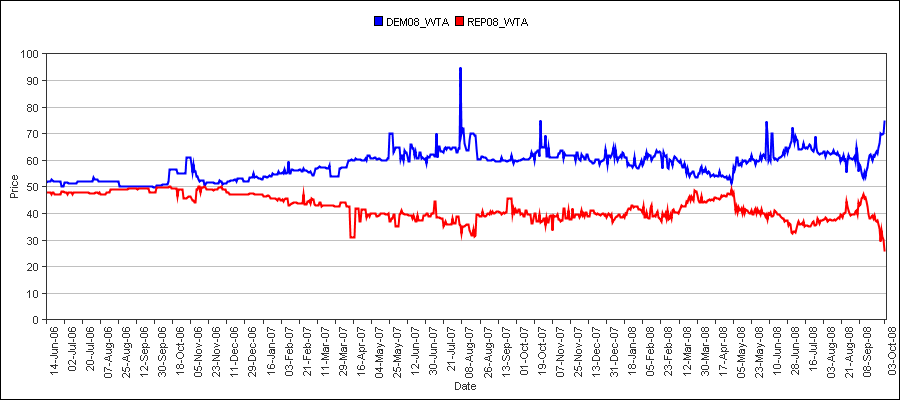
A Research Agenda for Political Prediction Market Regulation
By Pratik Chougule and Solomon Sia
Although data from PredictIt has furthered academic research on political prediction markets, the novel dilemmas associated with the regulation of political prediction markets remain an understudied area.
Research and polling on key questions in this space would give the prediction market community greater insights and guidance on how to influence the political process.
Below is a research agenda we recommend prioritizing:
Public Opinion: Why has American public opinion remained resistant to the liberalization of political prediction markets even as legalized gaming is expanding in other areas? Why is betting on politics often regarded as unseemly? What are the similarities and differences in American public attitudes compared to those in other countries like the UK, which have more permissive regulatory regimes? What is the source of perceptions that political prediction markets impact the integrity of elections? Do concerns about political prediction markets differ meaningfully at the federal and state levels?
Legal and Regulatory Reform: What factors influence the ways Congress, the CFTC, and the states approach the issue of political prediction markets? What legal strategies stand the greatest chance of moving the debate forward? Is there a First Amendment or other constitutional challenge that stands a reasonable chance of inviting judicial intervention on behalf of political prediction markets? What can be done to ensure that individuals and movements friendly to political prediction markets are represented in key regulatory bodies? Are there regulatory reforms that would lend themselves to better regulation of prediction markets? Are there jurisdictions that should be explored as safe harbors for political prediction markets?
Economic Purpose: How can political prediction markets be used more widely for their price discovery and hedging functions? What prevents traders and other market participants, even in highly liquid markets, from using political prediction markets to hedge risk? Can political prediction markets be designed so that political event contracts play more of a role in price-basing for commercial transactions? Can political prediction markets be created that clearly meet the CFTC’s economic purpose test by enabling price discovery and hedging in the manner of a traditional derivatives market? To what extent is it inevitable that retail speculation comprises the overwhelming percentage of market activity in political prediction markets?
Prediction Market Community: Who trades in prediction markets? Who uses insights from these markets? Who researches them? What motivates these groups? Where do they organize? What impact have they had on the regulation of political prediction markets?
It is critical that these studies involve a broad array of researchers who can disseminate findings to stakeholders across the policy community. Cutting-edge research from the academic community has not fully penetrated the political discourse, which may account for why regulators still have a limited understanding of these markets’ impact on the public interest. Part of the solution may involve partnerships between academics and think-tanks, advocacy groups, and content creators who are better situated than academics in shaping the political discourse.
Pratik Chougule is the executive director of the Coalition for Political Forecasting. Solomon Sia is a board member of the Coalition for Political Forecasting. This post is an excerpt from their report, “Political Betting Regulation in the United States: Pathways to Liberalization.”
